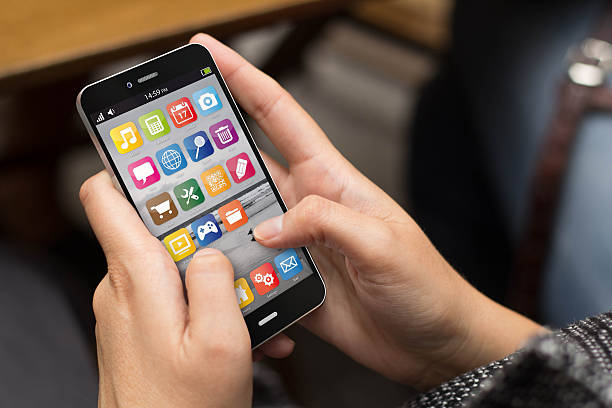Teenagers and young adults spend a significant portion of their lives online, and many rely on smartphones as their primary methods of communicating and interacting with the world around them. One thing young people, especially young men who have sex with men (YMSM), are not communicating about, however, is the human papillomavirus (HPV) vaccine. Few YMSM are getting this lifesaving vaccine, which can help prevent certain types of cancers. Could smartphone apps be an untapped (no pun intended) resource for reaching this population? Dr. Holly Fontenot, Adjunct Faculty member at The Fenway Institute and recently promoted Associate Professor with tenure at Boston College’s Connell School of Nursing, is principal investigator for a new study that aims to answer that question.
Dr. Fontenot’s clinical focus is sexual health and, through her work as a part-time nurse practitioner and nurse scientist at the Sidney Borum Jr. Health Center, she meets many young patients who are unaware of the tools available to protect themselves from HPV, HIV, and other STIs. Dr. Fontenot has found that most adolescent males and young cisgender men have misconceptions about the HPV vaccine – most commonly, that it’s a vaccine for female patients only. While HPV is typically discussed in the context of cervical cancer, HPV can also lead to anal and penile cancers, as well as cancer of the mouth and throat. Therefore, all YMSM should be receiving the HPV vaccine, preferably before becoming sexually active or before their mid-twenties.
In recents months, Dr. Fontenot has collaborated closely with Dr. Kenneth Mayer, Medical Research Director and Co-Chair of The Fenway Institute; Dr. Joshua Rosenberger, Penn State Assistant Professor of Biobehavioral Health; and Dr. Gregory Zimet, Professor of Pediatrics and Clinical Psychology at the Indiana University School of Medicine. In March, this team is starting recruitment on a National Institute of Allergy and Infectious Diseases (NIAID)-funded study to develop and test the efficacy of an app that helps YMSM easily access info on HPV and how to get the vaccine.
“Youth want to engage online in simple, easy, and quick ways,” Dr. Fontenot said. “If this app works, could future apps then be more comprehensive and integrated with the whole health system, at Fenway or anywhere else? Is there potential for using apps to partner with health centers in other states with lower vaccination rates and less MSM-affirming care? This (technology) could potentially be a bridge to the health care system for LGBT people.”
Study recruitment will take place through a short sexual health survey on a popular social networking app for MSM. Survey participants will then be invited to try the study app and given the opportunity to test it out and provide feedback. The app includes information on HPV and the HPV vaccine, how to schedule appointments via the Borum, understanding sexual health needs, navigating insurance for the vaccine, and more. With this app, patients will be able to find answers to many common questions about the HPV vaccine before even stepping into a doctor’s office.
“We’re trying to turn virtual engagement and community into real world action,” Dr. Fontenot explained. “This is a novel approach to eliminating known barriers to vaccinations, and exploring how technology can help eliminate those barriers.”
Want to receive email updates about what’s happening at Fenway Health and AIDS Action? Sign up here.


